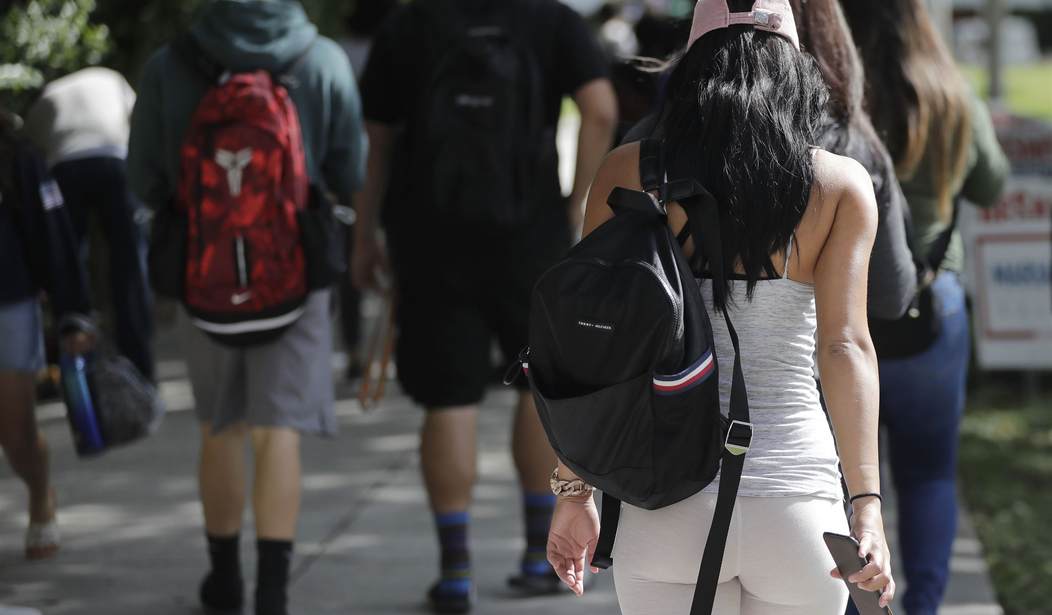The Wuhan coronavirus has forced secondary and post-secondary schools, colleges and universities to rethink how they teach America's youth. Earlier this spring, educators were forced to adapt and teach their lessons online. As the coronavirus pandemic rages on and schools look to the fall, many are preparing to continue with remote learning. The use of online classes has the federal government rethinking its Visa program, especially for foreign students planning to study here in the United States.
The Student and Exchange Visitor Program (SEVP) on Monday announced changes to their visa program in light of the coronavirus pandemic. Students will not be allowed to remain in the United States if they are taking a full online course load. If the institution the student is currently attending is conducting all online classes come the fall, the student has the ability to enroll in other schools or programs to meet the in-person requirements.
F-1 nonimmigrant students pursue academic coursework and M-1 nonimmigrant students pursue vocational coursework while studying in the United States.
Here are the guidelines (with F-1 nonimmigrant students referring to those pursuing academia while M-1 nonimmigrant students are pursing vocational training):
- Nonimmigrant F-1 and M-1 students attending schools operating entirely online may not take a full online course load and remain in the United States. The U.S. Department of State will not issue visas to students enrolled in schools and/or programs that are fully online for the fall semester nor will U.S. Customs and Border Protection permit these students to enter the United States. Active students currently in the United States enrolled in such programs must depart the country or take other measures, such as transferring to a school with in-person instruction to remain in lawful status. If not, they may face immigration consequences including, but not limited to, the initiation of removal proceedings.
- Nonimmigrant F-1 students attending schools operating under normal in-person classes are bound by existing federal regulations. Eligible F students may take a maximum of one class or three credit hours online.
- Nonimmigrant F-1 students attending schools adopting a hybrid model—that is, a mixture of online and in person classes—will be allowed to take more than one class or three credit hours online. These schools must certify to SEVP, through the Form I-20, “Certificate of Eligibility for Nonimmigrant Student Status,” certifying that the program is not entirely online, that the student is not taking an entirely online course load this semester, and that the student is taking the minimum number of online classes required to make normal progress in their degree program. The above exemptions do not apply to F-1 students in English language training programs or M-1 students pursing vocational degrees, who are not permitted to enroll in any online courses.
Recommended
The rule change requires colleges to update their information in the Student and Exchange Visitor Information System (SEVIS) within 10 days of the start of the fall semester if instruction starts in-person and is then switched to online-only. Students will be responsible for falling into compliance, either by adjusting their courseload or returning home.
According to the Institute of International Education, international students make up 5.5 percent of the United States' higher education population. These students are said to have contributed $44.7 billion to the U.S. economy in 2018.

























Join the conversation as a VIP Member